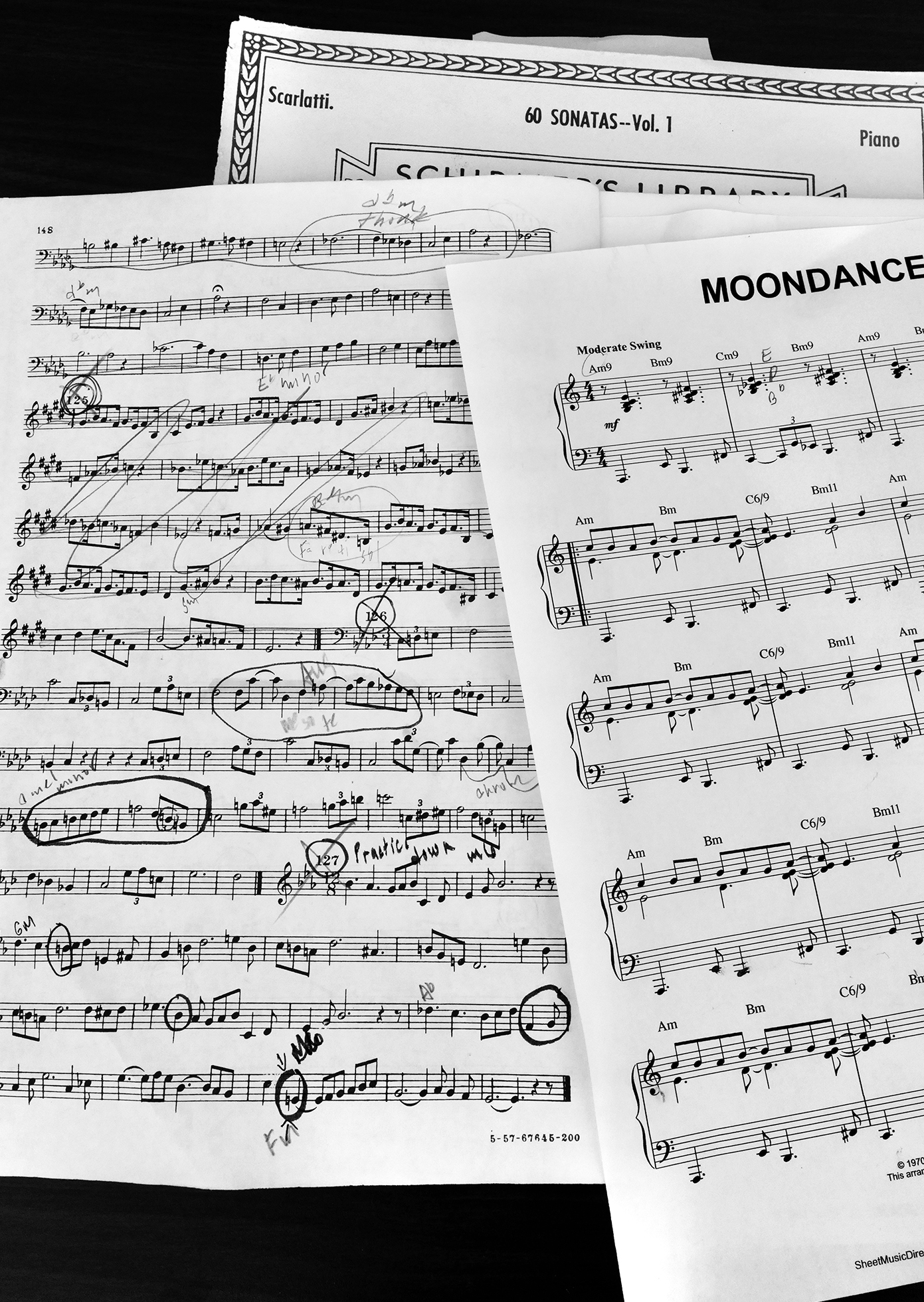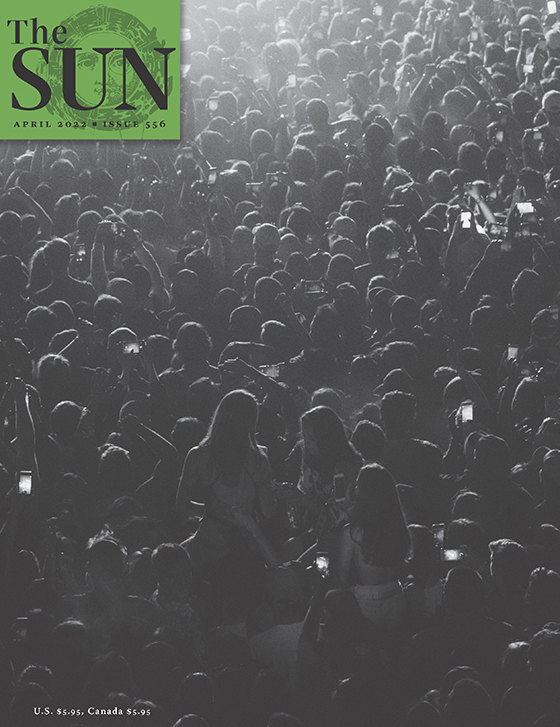Our elementary-school music teacher, Mr. C., was a nice-looking man who wore sweaters with elbow patches. I had an eight-year-old’s crush on him. I loved everything about music class, but I especially loved singing, “Val-deri! Val-dera! Val-deri! Val-dera-HA, HA, HA, HA, HA!” with my very robust lungs.
And that, as it turns out, was the problem. If you have a kid who’s loud and enthusiastic and loves to sing but is not hitting the notes — and, moreover, is making everyone around her go off-key — what do you do?
“Just mouth the words,” Mr. C. told me. He even put an avuncular arm around my shoulder as he delivered this instruction, which only made it worse.
I’d had no idea I was off-key. I didn’t know what a key was. Hot shame rose to my face, and I blinked back tears. To cry at school would have been even more embarrassing. When the concert came, I stood on the risers in the school auditorium, which was also the gym, in front of parents sitting on folding chairs. Surrounded by my singing classmates, I opened my mouth like theirs. I was a good little actress. The last thing I wanted was for anyone to suspect my dirty secret.
I was a weird kid, with frizzy hair and ears that stuck out. I was the only Jewish girl in my class, and I spent a lot of time trying to decode the social rules of girldom that other kids seemed to know instinctively: Don’t be too loud. Disparage your own artwork and say you like another girl’s better. Most of the time I walked around fathoms deep in whatever book I was immersed in. I literally walked into a telephone pole once because I could not bear to put away The Lion, the Witch and the Wardrobe long enough to walk to the store. Now singing was added to the growing list of things I wasn’t good at, alongside how to swing at a softball and knowing the cool thing to say at a party.
The effects of Mr. C.’s words were profound. After that incident I sorted people into two categories: those who could sing and those who couldn’t. I was now relegated to the land of Couldn’t, an exile from the country of music.
My best friend in high school played flute, sang like a bird, and had long brown hair that rippled down her back. Helen. For years we were inseparable. When I wasn’t eating dinner at her house, she was wedged in between my siblings and me at our dinner table, witnessing our family fights and being praised by my father as a “good eater” (his highest compliment). Afterward she and I would shut ourselves in my bedroom and sit knee to knee on my bed. I had a guitar I’d bought for fifty dollars with my babysitting money, a guitar I couldn’t play because I had no idea how to tune it. Was the G string flat or sharp? Who knew? Music for me remained a vast, rolling sea with no landmarks.
But Helen could tune the guitar and sing, “Four strong winds that blow lonely / Seven seas that run high,” in her lovely soprano. When Helen sang, the song came alive in the air and shimmered and was true. I didn’t know how she did it, but I recognized beauty, a soap bubble always floating just out of reach.
What kills me now is that our public high school boasted a whole team of gifted music teachers, any one of whom could have helped me. But I was an embarrassed teenager and did not have the guts to ask. Instead I acted in school plays, specializing in Tennessee Williams heroines who were dying of unnamed social diseases. No musicals.
Of course I married musical people. My first husband’s mother was a conductor who led a no-audition community chorus and orchestra. When I told her that I couldn’t sing, it was like waving a red flag in front of a bull.
“Everyone can sing!” she declared, her dark eyes flashing.
I was dubious, but my mother-in-law was not to be resisted. She tutored me, declared me a soprano, and told me that when I sang in my “head voice,” I was more in tune, because I had more resonance and power up there.
Under her instruction I worked up enough confidence to sing with the Jewish Women’s Chorus. Later, after my husband and I were getting a divorce, I joined the La Peña Community Chorus in Berkeley, California. I wasn’t perfect, but with strong singers all around me, I could get by. The hardest part was the constant fear of being found out, exposed as an interloper with shaky pitch. Once the others learned my terrible secret, I feared, I would be evicted again from the land of singing. I pushed my anxieties down, faked confidence, and listened hard to whatever the woman next to me was doing. I never volunteered for a solo, nor was I asked. Sheet music was placed in front of me, the little black marks going up and down like a procession of drunken ants, but the whole business of keys and intervals remained a complete mystery.
It’s 2007, and I’m sitting in a car with Lee, who will become my second husband, although neither of us knows this yet. It’s only our second or third date. I’m in my late forties, and for years I’ve belonged to an organization called Interplay, which is dedicated to the belief that singing, dancing, and storytelling are “birthright practices” that everyone can do. I’m singing again — no more cryptic sheet music, just winging it by ear — and I’m getting more comfortable letting my voice ring out in public spaces. Lee and I have just had dinner, and he’s driving me home. We’re basking in the glow of hey-this-might-actually-turn-out-to-be-something when he slides a Randy Newman CD into the car’s player: Sail Away. I love this album! I sing along with every word, and Lee does, too. I am ecstatic. Not only have I found someone who is gentle and funny and interesting, but we can sing together. This feels more intimate to me than taking off our clothes.
A few years later Lee confides to me that our Randy Newman sing-along was less than blissful for him. A pianist and guitarist who majored in music, he felt discomfort every time I hit a wrong note.
“Really?” I ask, my stomach dropping. It’s so painful to hear this, I want to run away and hide. But we’re married by now, and I know that Lee loves me — for reasons other than my singing voice. I also know he’s not a cruel person, that this confession is costing him something, and that when your partner offers you a piece of their truth, it’s a gift, however much it hurts to unwrap.
And I know about being an artist. I’ve been a writer for decades, getting rejected, getting accepted, and always revising, revising, revising. I understand what it is to really devote myself to getting the words right. I just don’t know how to work that way at singing.
For years now I’ve taught memoir for an adult-education program in Berkeley. Every semester I encounter students who desperately want to write but who never had time to learn the skills. They’ve been scribbling their story on scraps of paper and then losing the scraps. They’ve been waylaid by practical necessity, or they’ve followed one of a million other paths through the world, or they’ve been discouraged by a teacher who fixated on their errors and failed to see their fire. Their frustrated desires to write remind me of my own struggles to sing.
I teach them metaphor and simile and dialogue. I offer worksheets and prompts. We reflect on word choice and syntax and voice. But writing is like wrestling with an octopus. It’s not about having an elegant vocabulary, or even a gift for imagery. It’s a primal scream followed by an ice-cold shower when it comes time to edit, and you have to look at all your entrails splattered on the page and make dispassionate decisions like a surgeon in a triage tent. How do you teach that?
Ten years ago I began to write song lyrics. I asked Lee’s best friend, the musician and composer Loren Linnard, if he would collaborate with me on a musical. Loren was game, and together we wrote The Chain, which had a few successful workshop performances before Loren died of brain cancer in 2016.
After his death I continued to write with other composers — maybe sixty or seventy songs by now, many of which are too complex for me to sing, but I’ve heard others perform them beautifully, elevating my words beyond what I could have imagined.
And somewhere in there, over the last few years, Lee and I have begun to make music together again. There were many false starts: my abortive (but sincere!) attempts to learn guitar; voice lessons for Christmas from a sweet teacher who didn’t work out; children’s workbooks that I filled out, finding the notes on the piano, and then learning scales and — finally — what a key is.
Then the pandemic hit. And Lee and I were both home with the piano. We started working on “Hard Times,” an old Stephen Foster song that seemed well suited to the global catastrophe we were living through. I loved the plaintive melody and the way the top note rings out with an “O!” that sounds like a cry to heaven. Lee loved being able to play around with the simple song structure and inject his own blend of Dave Brubeck–inflected chords. He played, and I sang it over and over: loudly, softly, up-tempo, martial, melancholic. One night when we finished, I looked over at Lee. His hands were resting on the keyboard, and he had tears in his eyes. “That was really good,” he said quietly.
Sometimes now, as I work on scales and arpeggios, drilling the intervals into my aging brain, I think about what a difference it would have made in my young life if Mr. C. had said, “I love your enthusiasm, but you’re singing a different note from the other kids. Come see me at lunch, and I’ll help you with that.” But I’m not angry at that man, wherever he is now. As a teacher myself, I know I’ve inadvertently done harm. I’ve seen some students clearly and been able to help them. With others I’ve missed the mark.
And maybe if singing had come easily to me, I would have taken it for granted the way I’ve done with so many other gifts. Through all the work I’ve done and continue to do, including hiring a new and better teacher for private lessons over Zoom in 2021, I’ve come to accept my own voice, which has deepened and darkened with age. There’s some texture to it now, a little roughness like a cat’s tongue, a patina that wasn’t there when I was a shaky young soprano. I like it. I like how physical singing is. How it makes me sweat and sometimes cry. How some days I can hit the high notes with ease and other days not. How being in the lower range feels powerful and raw, and climbing out of it feels like emerging from a root cellar. How the high notes feel like I’m reaching for God. How I will never be done learning to sing, just like with everything else in life.





